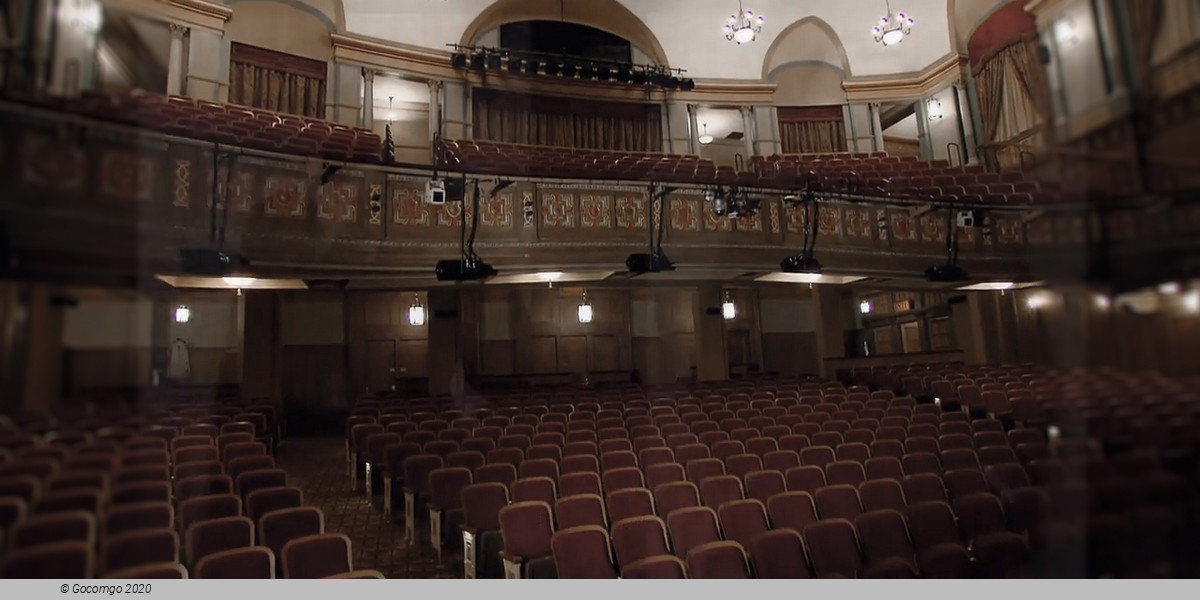Kimberly Akimbo (Booth Theatre) (New York, USA)
Kimberly Akimbo (Booth Theatre)

The Booth Theatre is a Broadway theater at 222 West 45th Street (George Abbott Way) in the Theater District of Midtown Manhattan in New York City. It has 800 seats across two levels and is operated by The Shubert Organization. The facade and parts of the interior are New York City landmarks. Since November 2022, the theater has been running the musical Kimberly Akimbo. The show tells the story of a lonely teenage girl, Kim, who suffers from a condition similar to progeria that causes her to age rapidly, thereby giving her the appearance of an elderly woman.
Opened in 1913, the theater was designed by Henry Beaumont Herts in the Italian Renaissance style and was built for the Shubert brothers. The venue was originally operated by Winthrop Ames, who named it for 19th-century American actor Edwin Booth.
The Booth's facade is made of brick and terracotta, with sgraffito decorations designed in stucco. Three arches face north onto 45th Street, and a curved corner faces east toward Broadway. To the east, the Shubert Alley facade includes doors to the lobby and the stage house. The auditorium contains an orchestra level, one balcony, box seats, and a coved ceiling. The walls are decorated with wooden paneling with windows above, an unusual design for Broadway theaters, and there is an elliptical proscenium arch at the front of the auditorium. The stage house to the south is shared with the Shubert Theatre, and a gift shop occupies some of the former dressing rooms.
The Shubert brothers developed the Booth and Shubert theaters as their first venues on the block. It opened on October 16, 1913, with Arnold Bennett's play The Great Adventure. Ames leased the theater and showed many of his own productions until 1932, when the Shuberts took over. Many of the Booth's initial productions had short runs, particularly in the 1930s, but longer runs began to predominate by the 1940s. Long-running productions have included Luv, Butterflies Are Free, That Championship Season, For Colored Girls Who Have Considered Suicide / When the Rainbow Is Enuf, and The Elephant Man.


